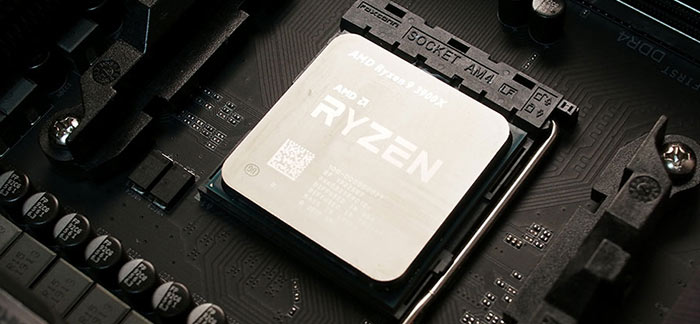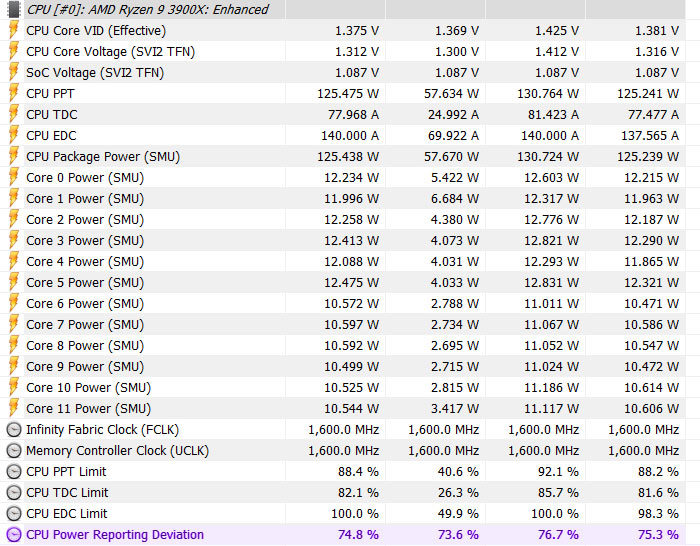Yesterday, in the wake of reports that AMD motherboard vendors have applied BIOS firmware to purposely misreport key power telemetry, AMD issued a statement to Tom's Hardware. It said that it has seen these reports, and that it is going to investigate further. The main worry is that while motherboard vendors have made these changes to squeeze the best performance from AMD silicon, a side effect could possibly be felt in processor stability or longevity.

Winding back a little, this story emanated from a hardware analysis and reporting feature introduced by the developers of HWinfo recently. The feature is dubbed Power Reporting Deviation, and in the words of the authors it "tells how much the CPU telemetry seen by the CPU differs from real world (expected) data". Furthermore, HWinfo fields an accusation against vendors, saying the deviation "is usually caused by mainboard vendor (often intentionally) providing wrong calibration data in BIOS (AGESA) to fool the CPU to run at a higher power than the limit for the SKU".
Of course the motherboard market is very competitive, better performance sells, and the manufacturers appear to be indulging in one-upmanship, by hook or by crook. In effect these motherboard vendors are secretly overclocking your AMD processor, by fiddling the data sent to AMD's Adaptive Voltage and Frequency Scaling (AVFS) algorithms.

HWinfo devs observed the above CPU power reporting deviation on a Ryzen 9 3900X running Cinebench
AMD's response is to the above revelations at this time is to soothe user-concerns. It says that while it is looking into the accuracy of the reports, AMD processors contain an array of safeguards which should still maintain CPU safety and longevity. For clarity the full statement is below:
"We want to be clear with our customers: AMD Ryzen processors contain a diverse array of internal safeguards that operate independently of external data sources. These safeguards enforce the safety and reliability of the processor during stock operation. Based on our initial assessment, we do not believe that altering external telemetry in the manner described by those public reports would have a material impact on the longevity or safety of a user's processor."
Going forward it will be interesting to see if further investigations by AMD finds that these motherboard firmware misreporting tweaks are indeed damaging, and whether its board partners will continue to implement them now this info is in the open. Lastly, change will depend on whether AMD puts pressure on board partners to alter their behaviour.













